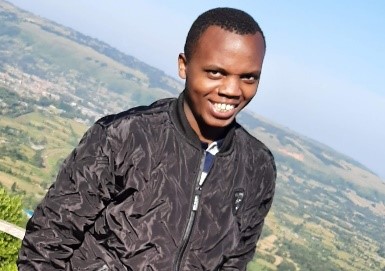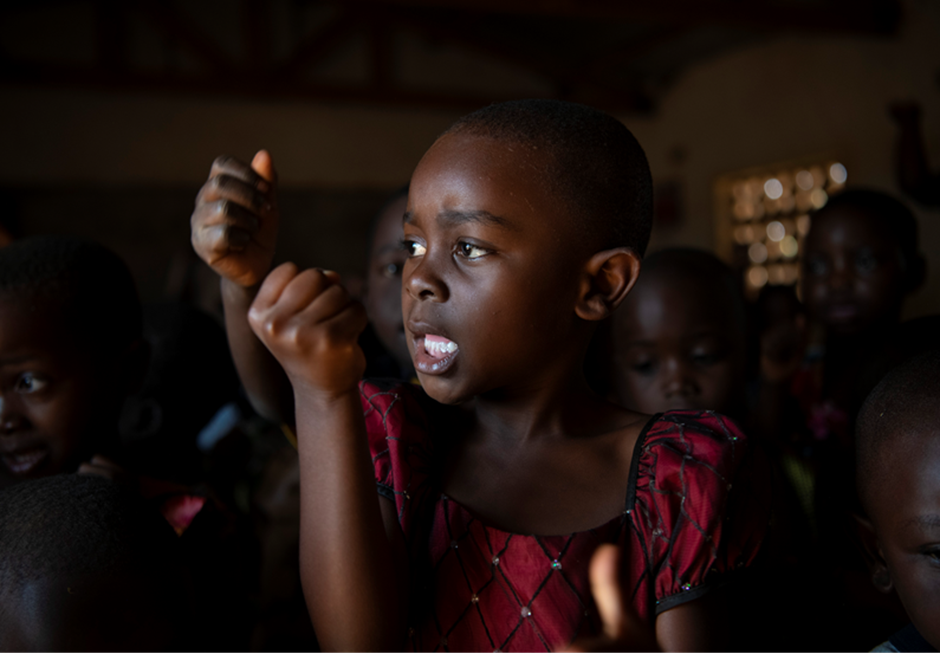

Anthony Kamande, Oxfam’s Inequality Research Coordinator, reflects on growing up in Kenya and the launch of Oxfam’s latest ‘Commitment to Reducing Inequality’ Index
As I sat down to write this article, I reflected a little bit on the power of public services. The fifth-born in a family of eight siblings, I am the first to have completed secondary education, and the first to have gone through university. All my other elder siblings stopped at the primary level, except one that dropped out midway through his secondary education because of a lack of fees.
I was able to do this only because the government introduced free public primary education in 2003, the year I started my primary schooling, and Free Day Secondary Education in 2008. Though free, parents have to close the teaching gap by hiring extra teachers. That is a heavy burden on poor households. I nearly dropped out of high school in the third year because of a financial burden of under $100 a year. I was lucky to get a scholarship from Wezesha Education Foundation, a charity, before I had to quit. Otherwise, you would not be reading this article.
Yet today, thousands of students from the poorest households around the world, like my siblings, are being denied an opportunity to pursue their dreams because of the wrong policy choices our government has been making. There are not many charities to offer them a scholarship, which is in itself a sign of the government’s failure. Today, Oxfam and Development Finance International released the fourth edition of the Commitment to Reducing Inequality (CRI) Index, which looks at policy actions that governments are taking in public services (education, health, and social protection), taxation and labour rights to reduce inequality. Its findings are, frankly, appalling.
Even after being faced with a once in a generation pandemic, most governments have failed to make the right policy choices. Spending on healthcare, education and social protection is low and falling, denying billions of people access to decent essential services. The majority of workers, especially in the world’s poorest countries, are exposed to exploitation as they lack formal contracts. Wages for average workers are declining. But governments are failing to adequately tax the richest and their corporations.

Ordinary people the main losers as budgets are cut and wages fall
Many governments have cut spending on education, health, and social protection during the pandemic. Half of the low and lower-middle-income countries tracked by the CRI Index cut the share of health spending in the total spending. About 70% of the 161 countries cut their share of the education budget, with half cutting social protection. The impact is predictably dismal. On average 60% of learners from the poorest households are not even graduating from secondary school.
The richest are getting away with low taxes as the tax burden falls disproportionately on the poor. During the pandemic, two-thirds (143) of the CRI countries and region did not raise their top personal income tax rates. 11 even cut them. Since 1980, corporate income tax (CIT) rates have tumbled in rich and poor nations from around 40% down to around 23.5% today, and they are set to fall further still, letting corporates and their wealthy owners and shareholders off the hook and denying governments hundreds of billions of dollars in lost revenue. During the pandemic, 22 countries cut their CIT rates
The pandemic opened a can of worms that for average and low-paid workers. First came the job losses and income reduction. Then, inflation hit a historic high, eroding workers’ purchasing power. Companies have been posting record profits, but wages have not kept up, meaning that shareholders are taking nearly everything at the expense of us all. For 161 countries tracked by the CRI, a third did not increase the national minimum wage during the pandemic, and in another third, the minimum wage grew at a slower pace than per capita GDP.
Some countries are showing the way
However, the CRI Index also shows that a few countries at all income levels are taking positive actions to reduce inequality. The Occupied Palestinian Territory increased health and social protection budgets during the pandemic. South Korea increased tax on the richest and spending on health and social protection. In Latin America, Costa Rica increased the top rate of personal income tax by ten percentage points. These countries are showing us that inequality is a policy choice, and action can be taken.
On the other hand, other countries are moving in the opposite direction. France and Belgium cut CIT rates. Ghana cut spending share on education, health and social protection, and the United States failed to raise the federal minimum wage, which was last updated in 2009.

We have the solutions, governments just failing to act
What baffles me is that we have all the solutions to these challenges. Our governments are just failing to act. They should now do what they are supposed to do: provide quality universal basic education and universal healthcare to every citizen, free at the point of delivery. They should strengthen social protection systems to protect vulnerable people and those in need.
Tax systems should be based on one’s ability to pay. Our governments should introduce permanent and progressive wealth taxes, as Argentina has done. Capital gains and other forms of wealth taxes such as property taxes need to rise. Global tax coordination is urgently needed to address profit shifting and tax dodging by multinationals. The current OECD deal of a 15% minimum tax rate on multinationals does little other than help wealthier countries to collect more taxes at the expense of poor countries.
The international community should step in with financial and technical support. Debt cancellation and restructuring are long overdue. Another issuance of Special Drawing Rights, an IMF financial asset, is desirable, but focusing on low and lower-middle-income countries. More aid should be directed to poor countries to fund the social sectors. Only then shall we be in the same sea and ship, instead of some on yachts and the majority clinging to life rafts trying not to drown.